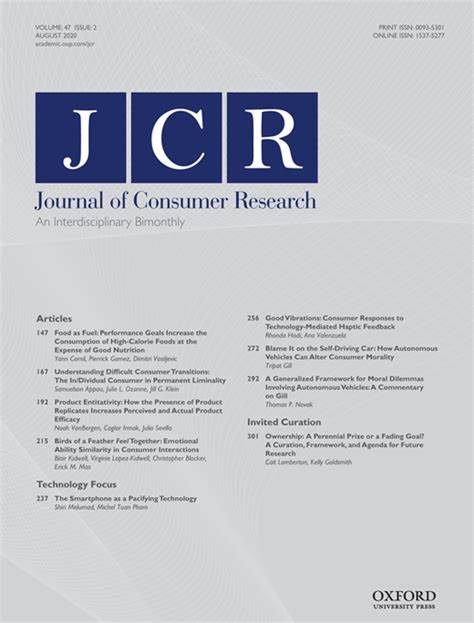传统生产方式如何塑造人们对产品质量的认知
IF 6.4
1区 管理学
Q1 BUSINESS
引用次数: 0
摘要
摘要:目前的研究考察了如何知识,一个产品是用传统的方法影响其质量的看法。我们建议消费者相信使用传统方法的品牌对社会有益,因为它关注文化保护,这种信念对感知质量有积极影响。六项实验研究表明,消费者对用传统方法生产的产品的评价比用传统方法生产的同类产品的质量更高,这种影响是由品牌对社会有益的信念所介导的。与这一理论相一致的是,当消费者认为品牌不关心文化保护时,传统生产对感知质量的积极影响就会减弱,例如当传统方法的使用被视为追随者策略(即模仿其他品牌的行为)或当品牌是跨国公司时。通过表明仅仅提及传统方法可以是另一种将品牌定位为道德行为者的微妙方式,这些发现有助于理解感知社会责任与产品评估之间的联系。本文章由计算机程序翻译,如有差异,请以英文原文为准。
How Traditional Production Shapes Perceptions of Product Quality
Abstract The current research examines how the knowledge that a product is made using a traditional method influences perceptions of its quality. We propose that consumers believe a brand using traditional methods is beneficial for society because it is concerned about cultural preservation and this belief has a positive effect on perceived quality. Six experimental studies show consumers evaluate products produced with a method described as traditional to be higher in quality than similar products that are not described as traditionally made and this effect is mediated by the belief the brand is beneficial for society. Consistent with this theory, the positive effect of traditional production on perceived quality is attenuated when consumers view the brand to be unconcerned about cultural preservation, such as when the use of a traditional method is framed as a follower strategy (i.e., it imitates the actions of other brands) or when the brand is a multinational company. By showing the mere mention of a traditional method can be another subtle way to position a brand as a moral actor, these findings contribute to the understanding of the link between perceived social responsibility and product evaluations.
求助全文
通过发布文献求助,成功后即可免费获取论文全文。
去求助
来源期刊

Journal of Consumer Research
BUSINESS-
CiteScore
12.00
自引率
9.70%
发文量
53
期刊介绍:
Journal of Consumer Research, established in 1974, is a reputable journal that publishes high-quality empirical, theoretical, and methodological papers on a wide range of consumer research topics. The primary objective of JCR is to contribute to the advancement of understanding consumer behavior and the practice of consumer research.
To be considered for publication in JCR, a paper must make a significant contribution to the existing body of knowledge in consumer research. It should aim to build upon, deepen, or challenge previous studies in the field of consumption, while providing both conceptual and empirical evidence to support its findings.
JCR prioritizes multidisciplinary perspectives, encouraging contributions from various disciplines, methodological approaches, theoretical frameworks, and substantive problem areas. The journal aims to cater to a diverse readership base by welcoming articles derived from different orientations and paradigms.
Overall, JCR is a valuable platform for scholars and researchers to share their work and contribute to the advancement of consumer research.
 求助内容:
求助内容: 应助结果提醒方式:
应助结果提醒方式:


